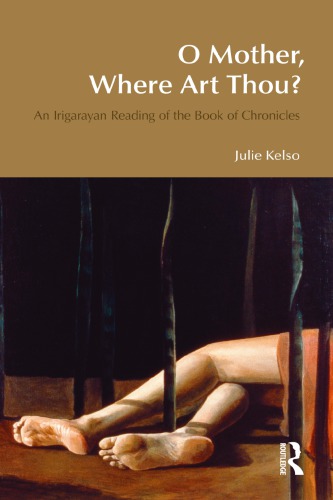

Most ebook files are in PDF format, so you can easily read them using various software such as Foxit Reader or directly on the Google Chrome browser.
Some ebook files are released by publishers in other formats such as .awz, .mobi, .epub, .fb2, etc. You may need to install specific software to read these formats on mobile/PC, such as Calibre.
Please read the tutorial at this link: https://ebookbell.com/faq
We offer FREE conversion to the popular formats you request; however, this may take some time. Therefore, right after payment, please email us, and we will try to provide the service as quickly as possible.
For some exceptional file formats or broken links (if any), please refrain from opening any disputes. Instead, email us first, and we will try to assist within a maximum of 6 hours.
EbookBell Team

4.0
6 reviewsAccording to Kelso, the Book of Chronicles silences women in specific ways, most radically through their association with maternity. Drawing on the work of two feminist philosophers, Luce Irigaray and Michelle Boulous Walker, she argues that we may discern two principal strategies of silencing women in Chronicles: disavowal and repression of the maternal body. In its simplest form, the silencing of women takes place through both an explicit and implicit strategy of excluding them from the central action. Largely banished from the central action, they are hardly able to contribute to the production of Israel s past. On a more complex level, however, women are most effectively silenced through their association with maternity, because the maternal body is both disavowed and repressed in Chronicles. The association of women with maternity, along with the disavowal and repression of the maternal body as origin of the masculine subject, effects and guarantees the silence of the feminine, enabling man to imagine himself as sole producer of his world. These strategies of silencing the feminine need to be understood in relation to the relative absence of women from the narrative world of Chronicles. Kelso argues that Chronicles depends on the absence and silence of women for its imaginary coherence. This argument is enabled by Irigarayan theory. But more importantly, Kelso suggests that Irigaray also offers us a viable mode (not method) of reading, writing, listening, and speaking as woman (whatever that might mean), in relation to the so-called origins of western culture, specifically the Hebrew Bible or Old Testament. She argues that Irigaray enables a not only rigorous, feminist critique of patriarchy and its many texts, but also, somewhat more charitably, a mode of reading that enables women to read the past differently, seeking out what remains to be discovered, especially the forgotten future in the past.